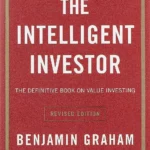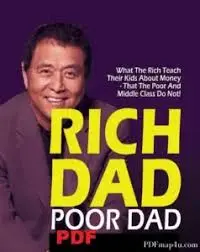Description
Rich Dad Poor Dad: A Review
Robert Kiyosaki’s Rich Dad Poor Dad is a financial literacy classic that has inspired millions worldwide. Using a storytelling approach, Kiyosaki contrasts the financial wisdom of his biological father (the “poor dad”) with that of his best friend’s father (the “rich dad”).
Key Takeaways
- Financial Education: The book emphasizes the importance of financial education, arguing that schools don’t adequately teach people about money.
- Assets vs. Liabilities: Kiyosaki defines assets as anything that puts money into your pocket and liabilities as anything that takes money out of your pocket. This distinction is crucial for understanding wealth creation.
- The Rat Race: The book describes the “rat race,” a cycle of working for money, spending it, and then repeating the process. It encourages readers to break free from this cycle by building passive income streams.
- Mindset Matters: Kiyosaki argues that our mindset about money is just as important as our financial knowledge. He emphasizes the importance of being financially literate and thinking like an investor.
Strengths of the Book
- Relatability: Kiyosaki’s storytelling style makes the concepts easy to understand.
- Practical Advice: The book offers practical tips for building wealth, such as investing in assets and avoiding debt.
- Inspirational: The book can be inspiring, motivating readers to take control of their financial future.
Criticisms
- Simplification: Some critics argue that the book oversimplifies complex financial concepts.
- Personal Anecdotes: The book relies heavily on personal anecdotes, which may not be representative of everyone’s experiences.
- Outdated Information: While the book has been updated over the years, some of the advice may be outdated, especially in a rapidly changing financial landscape.
Overall Assessment
Rich Dad Poor Dad is a valuable resource for anyone looking to improve their financial literacy. While it may not provide all the answers, it offers a solid foundation for understanding wealth creation and financial independence. The book’s emphasis on mindset, financial education, and asset-based investing is particularly valuable.




Reviews
There are no reviews yet.